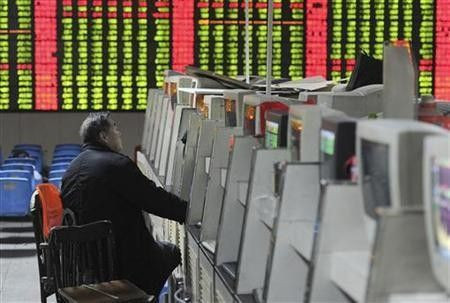Week Ahead: Asian Markets Likely To Remain Subdued

Most Asian stock markets reported losses last week after the U.S. Federal Reserve's limited help to revive the domestic economy and weak manufacturing reports from Europe, China and the U.S. Market sentiment is likely to remain subdued in the coming week as fears of a further global slowdown and economic headwinds from the euro zone continue.
Concerns over a global slowdown resurfaced last week with further drops in China and euro zone PMI manufacturing and a slump in the Philadelphia Fed's mid-Atlantic regional figures.
The data suggests we're going into a global slowdown, and as investors position for the end of the quarter, the volatility and weakness we saw this week could prove to be an appetizer for what's coming, Carl Kaufman, who helps manage about $2 billion at the Osterweis Strategic Income Fund in San Francisco, told Reuters.
European Union leaders will begin a two-day meeting in Brussels Thursday. The leaders of all 27 member states are expected to submit a roadmap to a banking and fiscal union over the next decade.
German Chancellor Angela Merkel has opposed using EU bailout funds to buy up the bonds of crisis-hit governments or letting the European Central Bank fund lend directly to troubled euro zone countries.
It is difficult to be bullish given increasing expectations of a further global slowdown, with the next China activity figures, U.S. job reports and European financial developments data key to assess whether a rally could be on the cards in the coming weeks, said a note from Credit Agricole.
Asian economic news during the coming week is expected to show that demand will remain subdued while inflation pressure will be easing. Vietnam's June exports and Hong Kong's May exports are likely to have slowed. Industrial production in South Korea should have remained subdued and the headline acceleration in Singaporean production is primarily due to base effects.
In Japan, reports on the unemployment rate, consumer price index and industrial production are to be released Friday. Unemployment is expected to remain flat at 4.6 percent and industrial production to be minus 2.8 percent for the month of May.
The China Securities Regulatory Commission has announced that the exchange-traded funds that linked to Hong Kong-listed shares may be launched on both the Shanghai and Shenzhen stock exchanges at the end of June. The ETFs will give investors on both sides access to each other's markets.
The Indian rupee continued its downward slide for the fifth consecutive day Friday to set the record low of 57.33 against the U.S. dollar before the Reserve Bank of India's suspected intervention propped it up. Increasing demand for the dollar from importers and renewed global risk aversion contributed to the fall of the rupee.
Indian Finance Minister Pranab Mukherjee announced Saturday that the government and the Reserve Bank of India would unveil new measures Monday to arrest the slide of the rupee. These are no doubts signs of weakness in the Indian economy. We will be able to take certain measures which will be announced on Monday, which will improve the market condition, said Mukherjee, Reuters reported.
Mukherjee, who is contesting the presidential elections, will resign from the cabinet Tuesday,, and the Finance Ministry is expected to come under the direct control of Prime Minister Manmohan Singh, who is likely to take more corrective measures to bring the economy back to normal. This shouldboost the investor confidence in the coming week and the Indian markets are expected to maintain their gaining momentum.
© Copyright IBTimes 2025. All rights reserved.





















